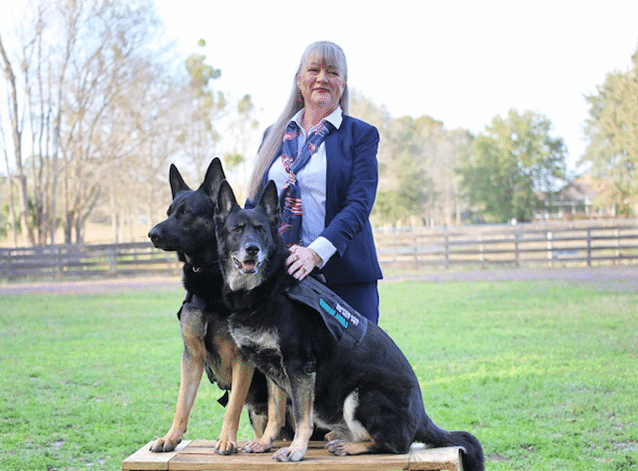For years, people thought that PTSD was an emotional issue. It has carried several different names throughout the generations, including Shellshock, Johnny Blues, Combat Fatigue, etc. Today, we know that this condition is known by the name of post-traumatic stress.
PTSD Misconceptions and Facts
A lot of people thought that PTSD was something that people just had to “get over” or that they just had to “man up” and that it was strictly an emotional issue. I’ve heard all those different comments, but if you follow the actual research and science, you will find that traumatic events often result in damage to the hippocampus and neurotransmitters in the brain thus creating ongoing challenges with PTSD in the individual.
Those areas of the brain are directly responsible for regulating the chemicals that control your emotional levels and fear factors, resulting in your emotional state. Research tells us that the cortisol level, as well as other stress hormones, of people with PTSD, are frequently out of normal range, triggering several issues such as fear, anxiety, and depression.
These issues can encompass horrific reoccurring nightmares, panic attacks, angry outbursts, other emotional meltdowns and serious depression. They can escalate rapidly between being very happy or very sad or very tearful. The damage from PTSD causes their bodies to be unable to keep these chemicals within normal ranges, causing the individual to go from zero to a hundred suddenly.
Being unable to control this leads to the individual becoming estranged from society and from their families, friends, etc. They become self-isolated, which induces a downward spiral of feeling worthless or useless since you are unable to function normally. Prior to PTSD, you were this strong person who was able to live life normally. Now it’s a very difficult thing to deal with, especially when your own family and friends often don’t understand. PTSD overwhelms and it overtakes your whole being.
How Service Dogs Help Those with PTSD
By introducing a service dog, we can initiate an incredible change. The service dog works with you to alert you and redirect you. Because of the scent training we do with our service dogs, they know your chemistry is changing. For example, the dog knows when you are entering a period of nightmares. Typically, the service dog will wake you up right before the nightmare starts or shortly after. This allows you to wake from the nightmare and go back to sleep again. Over time, we find that most of our recipients have a significant reduction in night terrors.
Service dogs also enable their recipient to go out into public again. They are trained to do a non-aggressive move called shielding, which creates a perimeter around you. This prevents people from entering your personal space or coming up behind you suddenly. The service dog’s skills provide their recipient the ability to go out in public and socialize with their families and friends again.
Because we know certain blood chemistries fluctuate in the body prior to a PTSD episode, we train our dogs to detect this change. We get scent samples from the individuals that we’re pairing our dogs with so that the dog learns to pick up on when these blood levels are out of normal range. The service dog starts alerting and redirecting the person when these episodes are approaching, so the person can utilize the dog to manage his symptoms.
There are many things a service dog can do to make an extreme impact in the lives of recipients, resulting in the recipient finding a new normal. At Guardian Angels Medical Service Dogs, we monitor this “new normal” by following up with our teams. First, by completing a baseline questionnaire prior to being paired with their service dog. After that, we follow up on a quarterly basis to determine any changes or improvements while utilizing their service dog.
Over the years, we have found that in almost every case, under their doctor’s care, our recipients have been able to reduce their medications drastically and, sometimes, altogether. Many of them are on several various medications to help them stay calm, to help them sleep, etc., when they first come to us, but over time with the help of their service dog and their doctor; we discover they have eliminated most, if not all.
With PTSD, medications, and therapy may be effective tools, but for some, it is not always enough. This is often when people come to us to apply for a service dog that then makes the total difference that they need. Oftentimes, it’s that added piece that was missing because the dog can be with the recipient 24/7 and alert to impending problems in advance.
They might feel better after they’ve been to their therapist, but their therapist can’t go home with them. They can’t go shopping with them. They can’t be there with them all the time, but the service dog can, and the dog can do things that people cannot do. The dog knows when their chemical levels are beginning to change within the body and can alert and take action to assist them.
We have been told time and again by recipients that if it wasn’t for their Guardian Angels service dog, they would not be walking this earth today because, unfortunately, that downward spiral that PTSD causes leads to the horrific numbers of suicide attempts and successful suicides that we see daily in our military and our veterans.
Recipient Success at Guardian Angels
We had a veteran that went through all the challenges previously mentioned regarding a PTSD downward spiral. He reached a point where he lived in his basement, lost his family, his friends, his career, etc., due to PTSD. He had a plan to end his life, but he decided to try one last thing – getting a service dog.
Today, he has his own apartment, he has repaired his estranged relationships, and he is out lecturing about service dogs almost every week. He’s invited to speak at many events, something he could have never done before. This is just one example of many situations that we have seen over the years of how recipients are entirely able to get their life back together with the help of our amazing service dogs and even do things they never thought they could.
To learn more visit the Meet Our Recipients page.





